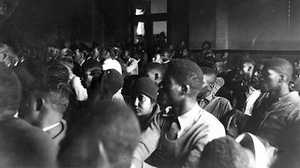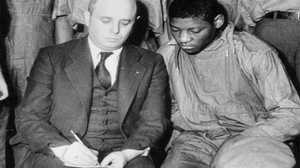The Scottsboro Accusers
Victoria Price (1911 - 1982):
"I didn't lie in Scottsboro. I didn't lie in Decatur and I ain't lied here. I've told the truth all the way through and I'm a' gonna go on fighting 'til my dying day or 'til justice is done."
-- after her lawsuit against NBC, 1976
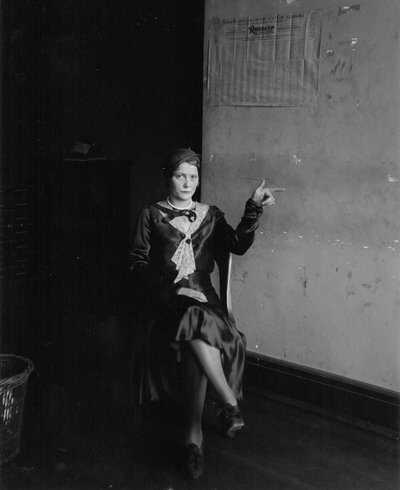
On March 25, 1931, Victoria Price and Ruby Bates were travelling in men's overalls, hoboing aboard a Southern Railroad freight train, when it was met by a heavily-armed posse in Paint Rock, Alabama. The posse sought the black teenagers who had thrown a group of white boys off the train. When the two white women said they had been raped by the black youths, the town, the women and the group of black young men and boys became part of the tragic episode in American history known as Scottsboro.
Price grew up in a poor part of Huntsville, Alabama and worked in local cotton mills, when there was work. During the Depression, the mills only employed Price and Bates for five or six days a month. On some of the other days, Price trespassed on the rails, travelling in search of work. She was just one of a vast army; at the height of the Depression, a quarter million jobless young people lived itinerant lives, moving from place to place by hopping trains.
Price had first gone to work as a spinner at age 10, alongside her mother, but after her mother suffered an injury, young Victoria earned all the money they had. Her 1931 wages, $1.20 a day, were only half of what she had been making before the Depression, in 1929. The Hunstville Deputy Sheriff told a researcher for the American Civil Liberties Union that Price supplemented her earnings with prostitution. Other neighbors reported that black men were among her patrons. Price herself insisted that she was virtuous and ruined by the black youths on the train.
When Victoria Price accused six of the nine boys of raping her, she was twenty-one years old, and had been married three times. According to Ruby Bates and Lester Carter, the white young man Bates had met a few days before, Price had been with her boyfriend, a married man named Jack Tiller, two nights before the ill-fated train ride. On the witness stand, Carter testified he'd met Tiller and Price in Huntsville, where they were jailed for adultery and he had been locked up for vagrancy. When they were released, the group met up with Ruby Bates, and the four decided to ride the rails together. Bates and Price spent the night, and had sex with Carter and Tiller, in a hobo jungle, a temporary camp near the tracks that was used by itinerants waiting for trains.
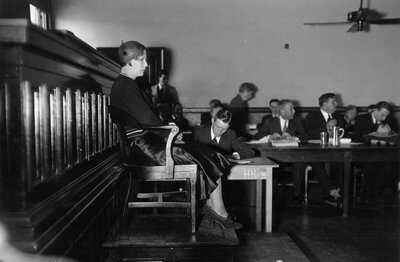
Defense lawyer Samuel Leibowitz suggested that Price had invented the rape by the black defendants when the train they'd hopped was stopped in Paint Rock. He proposed that Price made up the charge to protect herself and Bates. Leibowitz speculated that the young women feared they would be arrested for vagrancy or for being hobos in the company of the black youths. And he amassed a host of details in his witnesses' testimony to prove Price wasn't telling the truth. But Leibowitz was unable to depict Price as the lying, loose woman he believed her to be. An atmosphere of extreme hostility toward the Jewish New York lawyer and his witnesses had taken hold, so much so that a reporter in the courtroom heard more than one person say, "It'll be a wonder if Leibowitz gets out alive." Despite the many inconsistencies in her testimony, Price captured the all-white jury's sympathy. Denying any acquaintance with Carter, rejecting his story of spending the night in the hobo jungle, and insisting she had been raped by the black youths on the train, Price offered her own explanation of events.
She was an avid talker and told the story of the rape with many colorful details. The rape story she told to grand and petit juries at Scottsboro involved knives and guns with one boy claiming they were going to take the girls north and "make us their women." At the trials in Decatur, she said that "one of them pulled out his private parts and says, 'when I put this in you and pull it out you will have a Negro baby.'"
Price was the star witness for the prosecution, but perfectly uncooperative with the defense. In response to Leibowitz's questions, she would reply, "I can't say" or "I can't remember." When asked if the model train he set up in court was similar to the one they had been riding on she said it was not, the train she rode on was much bigger. Along with his questions, Leibowitz introduced evidence that Price had been arrested for adultery and fornication in January of 1931.
The cases were repeatedly appealed and retried. In 1934 lawyers for the International Labor Defense tried to bribe her to change her testimony, but she revealed the plot to the police. At four trials in Scottsboro, one before Judge Horton, two more in 1933 before Judge Callahan, and four more in 1937, Victoria Price stuck to her story, refusing to budge under cross-examination, and each time the jury found the defendants guilty. After 1937, four of the defendants were in prison for rape, one for assault and four others had been let free. Price was no longer needed to testify and she faded into obscurity. Dan Carter wrote in his 1969 history of the trial, Scottsboro, A Tragedy of the American South, that he believed she was dead.
In 1976 Price resurfaced. Now known as Katherine Queen Victory Street, she was suing NBC for slander and invasion of privacy for the broadcast of Judge Horton and the Scottsboro Boys, a television movie. She had married twice more since World War II and was living in Tennessee. She returned to the witness stand for her suit and told her story for the twelfth time in a court of law. In the end, her case was dismissed by the judge. She died in 1982.
Ruby Bates (1915 - 1976):
"I told it just like Victoria Price told it." - testifying at Decatur, 1933
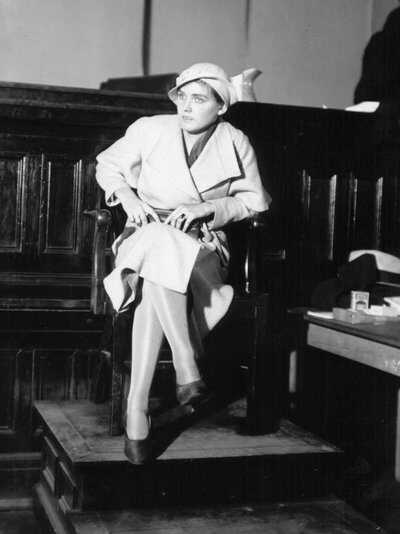
At the time she accused three black young men of raping her, Ruby Bates was seventeen years old. She lived, like Victoria Price, in a poor neighborhood of Huntsville and worked in the mills. Wages in 1931 were half what they had been just two years ago, and that was when work was available.
Although some Southerners believed racial segregation was present at all levels of society, that just wasn't true. In the poverty-stricken parts of Huntsville where Bates spent her time, blacks and whites played together, drank together, and even sometimes slept together. Bates, who was white, had once been arrested for hugging a black man in public; this incident indicates the difference between behavior that was present and that which was legislated against.
Bates was the quieter of the two accusers, and was always more vague about what had happened on the train. For the most part, she let Price do the talking and concurred with her version of events. At the first trial, in Scottsboro in 1931, she confirmed the story they had told the posse at Paint Rock, Alabama, on the day they came off the train and alleged that nine black teenagers had raped them.
In 1932, during an unrelated arrest, police found a letter that Bates had written to a boyfriend. In the letter, she denied having been raped. The man who had the letter on his person claimed that he had been paid by the International Labor Defense to get Bates drunk and have her write the letter.
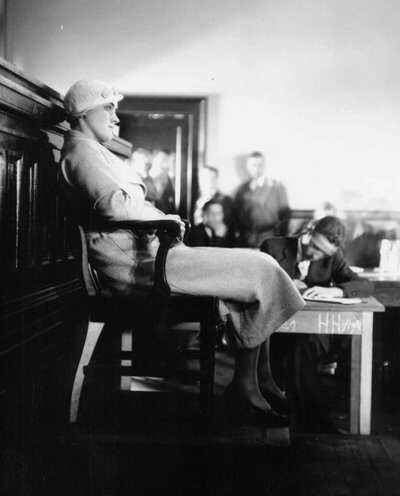
Not long afterward, Bates disappeared. She wasn't seen for weeks. Then, in a surprise twist to Haywood Patterson's second trial in Decatur before Judge James Horton in 1933, Bates appeared as a surprise witness for the defense. She testified that there was never any rape, and that the evidence of sexual activity from the examination of herself and Price was from the night before, when they had been with their boyfriends. Under cross-examination, she was confronted with the conflicts in her testimony at Scottsboro, and becoming flustered, proved to be a poor witness. Furthermore, she was asked about how she had paid for the new dress she had on, and where she had been. Her answer, that her new possessions were bought for her in New York, convinced many that her testimony had been bought as well.
According to Bates, she had gone to New York with a friend. Having a crisis of conscience, she sought out Reverend Harry Emerson Fosdick, pastor of Riverside Church, whose picture she had seen and found trustworthy. They met, and he convinced her to return to Alabama to testify.
After the Patterson trial, Bates discovered that she was the target of much of the hate and resentment that had previously been focused on defense attorney Samuel Leibowitz and the Communists of the I.L.D. She was taken out of town by armed deputies and sent back north, where many people celebrated her courage and honesty. Among them were Communists, who asked her to speak at rallies for the case, including a March on Washington in 1933 with the parents of the defendants. On that trip, she spoke to a crowd of five thousand in Baltimore: "I want to tell you that the Scottsboro boys were framed by the bosses of the south and two girls. I was one of the girls and I want you to know that I am sorry I said what I did at the first trial, but I was forced to say it. Those boys did not attack me and I want to tell you all right here now that I am sorry that I caused them all this trouble for two years, and now I am willing to join hands with black and white to get them free." Bates even wrote to the defendants in prison and appeared at rallies with them when four were released in 1937.
After testifying for the defense, Bates could no longer stay in her community. She moved to Washington State in 1940, married Elmer Schut and called herself Lucille. She resurfaced in the 1970s to file a slander suit against NBC for its broadcast of the television movie Judge Horton and the Scottsboro Boys. Her husband died in October of 1976, and Ruby died a week later, just two days after Clarence Norris received his pardon from the State of Alabama.






